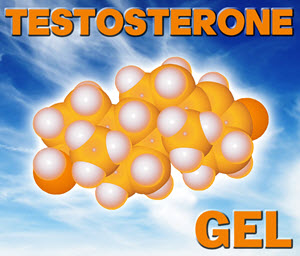Introduction
In the competitive world of American sports, athletes continually seek methods to enhance their performance. One such method that has sparked significant debate is the use of Serostim, a synthetic human growth hormone (HGH). This article delves into the controversial use of Serostim among American male athletes, exploring its potential benefits, risks, and ethical implications.
What is Serostim?
Serostim is a brand name for recombinant human growth hormone (rhGH), which is identical to the natural growth hormone produced by the pituitary gland. It is primarily used to treat growth failure in children and adults with growth hormone deficiency, as well as to combat wasting in patients with AIDS. However, its off-label use in sports has raised concerns due to its potential to enhance athletic performance.
Potential Benefits for Athletes
The allure of Serostim for athletes lies in its purported ability to increase muscle mass, reduce body fat, and enhance recovery times. Studies have shown that HGH can stimulate protein synthesis, leading to increased muscle growth and strength. For American male athletes, particularly those in sports that demand physical prowess, such as football, baseball, and bodybuilding, these benefits can be highly appealing.
Risks and Side Effects
Despite its potential benefits, the use of Serostim in sports is not without risks. Common side effects include joint and muscle pain, swelling due to fluid retention, and increased risk of diabetes and heart disease. Long-term use can lead to more severe conditions such as acromegaly, a disorder characterized by abnormal growth of bones and tissues. The lack of regulation and oversight in its use among athletes further exacerbates these risks.
Ethical and Legal Considerations
The use of Serostim in sports raises significant ethical questions. The World Anti-Doping Agency (WADA) and the National Collegiate Athletic Association (NCAA) have banned the use of HGH in competitive sports, citing unfair advantages and health risks. Athletes caught using Serostim face severe penalties, including suspension and loss of titles. The ethical dilemma lies in balancing the desire for peak performance with the integrity of the sport and the health of the athletes.
The American Male Athlete's Perspective
For many American male athletes, the pressure to perform at the highest level can be immense. The promise of a competitive edge through Serostim can be tempting, especially in a culture that often glorifies athletic success. However, the potential long-term health consequences and the risk of tarnishing one's reputation and career must be carefully weighed.
Alternatives to Serostim
Given the risks and ethical concerns associated with Serostim, athletes are encouraged to explore safer and legal alternatives to enhance their performance. These include proper nutrition, strength training, and recovery techniques. Additionally, natural supplements and vitamins can support overall health and athletic performance without the risks associated with HGH.
Conclusion
The use of Serostim to enhance athletic performance remains a controversial topic among American male athletes. While it offers potential benefits in terms of muscle growth and recovery, the associated health risks and ethical concerns cannot be overlooked. As the debate continues, it is crucial for athletes to prioritize their long-term health and the integrity of their sport over short-term gains. By focusing on natural and legal methods to improve performance, American male athletes can achieve success without compromising their well-being or the fairness of competition.
Contact Us Today For A Free Consultation

- Unveiling the Psychological Effects of Serostim Therapy in Men Suffering from Chronic Wasting [Last Updated On: February 18th, 2025] [Originally Added On: February 18th, 2025]
- Serostim for HIV/AIDS Wasting: Contraindications, Drug Interactions, and Management in American Males [Last Updated On: February 19th, 2025] [Originally Added On: February 19th, 2025]
- Serostim: A Promising Ally in the Fight Against Sarcopenia in Aging American Males [Last Updated On: March 12th, 2025] [Originally Added On: March 12th, 2025]
- Serostim's Potential in Treating Turner Syndrome in American Males: Growth and Quality of Life [Last Updated On: March 15th, 2025] [Originally Added On: March 15th, 2025]
- Serostim in Sports: Ethical Dilemmas and Performance Impacts on American Male Athletes [Last Updated On: March 15th, 2025] [Originally Added On: March 15th, 2025]
- Unveiling the Power of Serostim Therapy in Post-Surgical Muscle Recovery and Regeneration [Last Updated On: March 16th, 2025] [Originally Added On: March 16th, 2025]
- Exploring the Impact of Serostim Therapy on Nutritional Status in American Males with Chronic Pancreatitis [Last Updated On: March 16th, 2025] [Originally Added On: March 16th, 2025]
- Exploring the Impact of Serostim Therapy on Nutritional Health in American Males with Chronic Pancreatitis [Last Updated On: March 16th, 2025] [Originally Added On: March 16th, 2025]
- Unveiling the Potential of Serostim in Managing Growth Hormone Deficiency Among American Males [Last Updated On: March 16th, 2025] [Originally Added On: March 16th, 2025]
- Exploring the Efficacy of Serostim in Combating Cancer-Related Cachexia in American Males [Last Updated On: March 16th, 2025] [Originally Added On: March 16th, 2025]
- Serostim's Role in Treating Pediatric Growth Disorders in American Males [Last Updated On: March 17th, 2025] [Originally Added On: March 17th, 2025]
- Serostim: A Promising Treatment for Chronic Fatigue Syndrome in American Males [Last Updated On: March 17th, 2025] [Originally Added On: March 17th, 2025]
- Serostim's Impact on Cardiovascular Health in American Men with Growth Hormone Deficiency [Last Updated On: March 17th, 2025] [Originally Added On: March 17th, 2025]
- Serostim's Potential in Treating Anorexia Nervosa Among American Males: Benefits and Considerations [Last Updated On: March 18th, 2025] [Originally Added On: March 18th, 2025]
- Serostim Therapy: Enhancing Burn Recovery in American Males [Last Updated On: March 18th, 2025] [Originally Added On: March 18th, 2025]
- Serostim's Potential in Managing Crohn's Disease Complications in American Males [Last Updated On: March 19th, 2025] [Originally Added On: March 19th, 2025]
- Serostim: Enhancing Skin Health and Wound Healing in American Males with Chronic Conditions [Last Updated On: March 19th, 2025] [Originally Added On: March 19th, 2025]
- Serostim Therapy Enhances Sleep Quality in American Males with Chronic Illnesses [Last Updated On: March 20th, 2025] [Originally Added On: March 20th, 2025]
- Serostim: Enhancing Cognitive Function in American Males with Growth Hormone Deficiency [Last Updated On: March 21st, 2025] [Originally Added On: March 21st, 2025]
- Serostim for American Males: Managing RA-Induced Muscle Wasting Effectively [Last Updated On: March 21st, 2025] [Originally Added On: March 21st, 2025]
- Serostim's Impact on Prader-Willi Syndrome: Enhancing Health in American Males [Last Updated On: March 21st, 2025] [Originally Added On: March 21st, 2025]
- Serostim's Potential in Managing Noonan Syndrome: Benefits and Challenges [Last Updated On: March 22nd, 2025] [Originally Added On: March 22nd, 2025]
- Serostim's Potential in Treating Fibromyalgia Muscle Wasting in American Males [Last Updated On: March 22nd, 2025] [Originally Added On: March 22nd, 2025]
- Serostim: A Novel Approach to Managing Muscle Wasting in COPD Patients [Last Updated On: March 23rd, 2025] [Originally Added On: March 23rd, 2025]
- Serostim's Role in Enhancing Traumatic Brain Injury Recovery: A Promising Approach [Last Updated On: March 23rd, 2025] [Originally Added On: March 23rd, 2025]
- Serostim's Efficacy in Managing Osteoporosis in American Males with GHD [Last Updated On: March 23rd, 2025] [Originally Added On: March 23rd, 2025]
- Serostim's Impact on Post-Surgical Recovery in American Males: Benefits and Considerations [Last Updated On: March 24th, 2025] [Originally Added On: March 24th, 2025]
- Serostim Therapy: Enhancing Muscle Recovery in American Males with Spinal Cord Injuries [Last Updated On: March 24th, 2025] [Originally Added On: March 24th, 2025]
- Serostim: A Promising Treatment for Muscle Wasting in American Males with IBD [Last Updated On: March 24th, 2025] [Originally Added On: March 24th, 2025]
- Serostim's Role in Treating Muscle Wasting in American Males with CKD [Last Updated On: March 24th, 2025] [Originally Added On: March 24th, 2025]
- Serostim's Role in Treating Cancer Cachexia: Benefits, Challenges, and Future Research [Last Updated On: March 25th, 2025] [Originally Added On: March 25th, 2025]
- Serostim: Enhancing Muscle, Bone Health, and Quality of Life in Adult Males with GHD [Last Updated On: March 25th, 2025] [Originally Added On: March 25th, 2025]
- Serostim's Impact on Muscle Strength in American Men with Muscular Dystrophy [Last Updated On: March 25th, 2025] [Originally Added On: March 25th, 2025]
- Serostim: Enhancing Growth and Quality of Life in American Male Pediatric Patients [Last Updated On: March 25th, 2025] [Originally Added On: March 25th, 2025]
- Serostim's Role in ALS Treatment: Benefits, Risks, and Future Research for American Males [Last Updated On: March 26th, 2025] [Originally Added On: March 26th, 2025]
- Serostim's Role in Enhancing Nutrition for American Males with Cystic Fibrosis [Last Updated On: March 26th, 2025] [Originally Added On: March 26th, 2025]
- Serostim: A Promising Treatment for Cachexia in Advanced Liver Disease Patients [Last Updated On: March 26th, 2025] [Originally Added On: March 26th, 2025]
- Serostim's Potential in Treating TB-Related Muscle Wasting in American Males [Last Updated On: March 26th, 2025] [Originally Added On: March 26th, 2025]
- Serostim's Potential in Enhancing Fertility for American Males with Growth Hormone Deficiency [Last Updated On: March 26th, 2025] [Originally Added On: March 26th, 2025]
- Serostim's Potential in Managing Muscular Dystrophy: Benefits and Clinical Insights [Last Updated On: March 26th, 2025] [Originally Added On: March 26th, 2025]
- Serostim Enhances Recovery in American Males with Severe Burns: Mechanism and Clinical Evidence [Last Updated On: March 26th, 2025] [Originally Added On: March 26th, 2025]
- Serostim's Potential in Treating Muscle Wasting in American Males with Rheumatoid Arthritis [Last Updated On: March 26th, 2025] [Originally Added On: March 26th, 2025]
- Serostim's Psychological Benefits for American Males with Chronic Wasting Syndromes [Last Updated On: March 26th, 2025] [Originally Added On: March 26th, 2025]
- Serostim Therapy Enhances Muscle Health in American Males with Multiple Sclerosis [Last Updated On: March 26th, 2025] [Originally Added On: March 26th, 2025]
- Serostim's Potential in Treating Cachexia for American Males with Heart Failure [Last Updated On: March 26th, 2025] [Originally Added On: March 26th, 2025]
- Serostim Therapy in Diabetes: Benefits, Risks, and Considerations for American Males [Last Updated On: March 26th, 2025] [Originally Added On: March 26th, 2025]
- Serostim Enhances Bone Health in American Males with Growth Hormone Deficiency [Last Updated On: March 27th, 2025] [Originally Added On: March 27th, 2025]
- Serostim Therapy Enhances Muscle Mass and Mobility in American Males with MS [Last Updated On: March 27th, 2025] [Originally Added On: March 27th, 2025]
- Serostim's Impact on Liver Function in American Men with Growth Hormone Deficiency [Last Updated On: March 27th, 2025] [Originally Added On: March 27th, 2025]
- Serostim's Impact on Energy and Fatigue in American Men with Growth Hormone Deficiency [Last Updated On: March 27th, 2025] [Originally Added On: March 27th, 2025]
- Serostim's Potential to Enhance Respiratory Muscle Strength in COPD Patients: A Review [Last Updated On: March 27th, 2025] [Originally Added On: March 27th, 2025]
- Serostim's Impact on Gastrointestinal Health in American Males with Short Bowel Syndrome [Last Updated On: March 27th, 2025] [Originally Added On: March 27th, 2025]
- Serostim: A Hopeful Treatment for Muscle Wasting in American Males with HIV/AIDS [Last Updated On: March 27th, 2025] [Originally Added On: March 27th, 2025]
- Serostim: Enhancing Quality of Life for American Males with Chronic Illnesses [Last Updated On: March 27th, 2025] [Originally Added On: March 27th, 2025]
- Serostim Therapy Enhances Nutritional Status in American Males with Chronic Pancreatitis [Last Updated On: March 28th, 2025] [Originally Added On: March 28th, 2025]
- Serostim: A Promising Therapy for Cachexia in American Males with CHF [Last Updated On: March 28th, 2025] [Originally Added On: March 28th, 2025]
- Serostim's Efficacy in Treating Cancer-Related Cachexia in American Males [Last Updated On: March 29th, 2025] [Originally Added On: March 29th, 2025]
- Serostim's Role in Enhancing Recovery from Traumatic Brain Injury: A Comprehensive Overview [Last Updated On: March 30th, 2025] [Originally Added On: March 30th, 2025]
- Serostim's Role in Managing Muscle Wasting in American Males with IBD [Last Updated On: March 30th, 2025] [Originally Added On: March 30th, 2025]
- Serostim's Impact on Muscle Mass and Strength in American Males with COPD [Last Updated On: March 31st, 2025] [Originally Added On: March 31st, 2025]
- Serostim Therapy in Men: Effects on Liver Function and Monitoring Guidelines [Last Updated On: March 31st, 2025] [Originally Added On: March 31st, 2025]
- Serostim's Efficacy in Treating Osteoporosis in Growth Hormone Deficient American Males [Last Updated On: April 1st, 2025] [Originally Added On: April 1st, 2025]
- Serostim's Role in Managing Muscle Wasting in American Males with CKD [Last Updated On: April 3rd, 2025] [Originally Added On: April 3rd, 2025]
- Serostim's Role in Managing Short Bowel Syndrome: Benefits for American Males [Last Updated On: April 7th, 2025] [Originally Added On: April 7th, 2025]
- Exploring Serostim's Potential in Treating ALS: A Comprehensive Overview [Last Updated On: April 7th, 2025] [Originally Added On: April 7th, 2025]
- Serostim: Enhancing Muscle Recovery in American Males with Spinal Cord Injuries [Last Updated On: April 8th, 2025] [Originally Added On: April 8th, 2025]
- Serostim's Impact on Respiratory Muscle Strength in American Males with COPD [Last Updated On: April 9th, 2025] [Originally Added On: April 9th, 2025]
- Serostim Therapy in Diabetic American Males: Benefits, Risks, and Clinical Management [Last Updated On: April 9th, 2025] [Originally Added On: April 9th, 2025]
- Serostim: A Potential Treatment for Muscle Wasting in TB Among American Males [Last Updated On: April 9th, 2025] [Originally Added On: April 9th, 2025]
- Serostim's Efficacy and Safety for Growth Hormone Deficiency in American Males [Last Updated On: April 9th, 2025] [Originally Added On: April 9th, 2025]
- Serostim's Role in Managing Cachexia Among American Male Cancer Patients [Last Updated On: April 10th, 2025] [Originally Added On: April 10th, 2025]
- Serostim's Impact on Energy and Fatigue in American Men with Growth Hormone Deficiency [Last Updated On: April 11th, 2025] [Originally Added On: April 11th, 2025]
- Serostim: Enhancing Quality of Life in American Men with Chronic Illnesses [Last Updated On: April 11th, 2025] [Originally Added On: April 11th, 2025]
- Serostim Therapy Enhances Nutrition in American Males with Chronic Pancreatitis [Last Updated On: April 11th, 2025] [Originally Added On: April 11th, 2025]
- Serostim's Role in Managing Cachexia in American Males with Liver Disease [Last Updated On: April 14th, 2025] [Originally Added On: April 14th, 2025]
- Serostim Enhances Bone Health in American Men with Growth Hormone Deficiency [Last Updated On: April 15th, 2025] [Originally Added On: April 15th, 2025]
- Serostim's Impact on Muscle Strength in American Males with Muscular Dystrophy [Last Updated On: April 16th, 2025] [Originally Added On: April 16th, 2025]
- Serostim's Impact on Muscle Mass in American Males with COPD: A Promising Treatment [Last Updated On: April 17th, 2025] [Originally Added On: April 17th, 2025]
- Serostim: A Key Treatment for HIV-Associated Wasting in American Males [Last Updated On: April 17th, 2025] [Originally Added On: April 17th, 2025]
- Serostim's Potential in Treating Muscle Wasting in American Males with Rheumatoid Arthritis [Last Updated On: April 17th, 2025] [Originally Added On: April 17th, 2025]
Word Count: 543



















